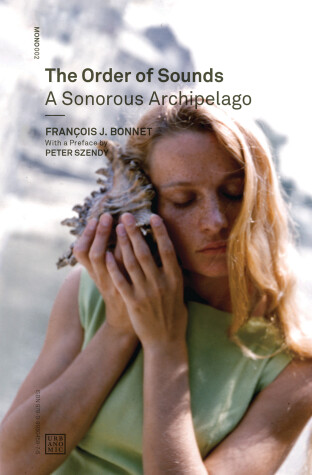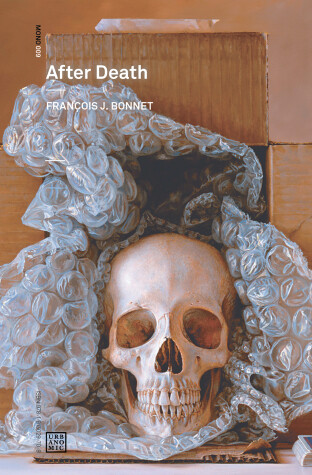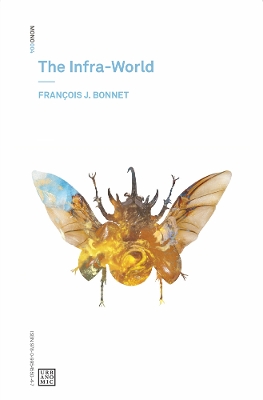Urbanomic / Mono
2 primary works • 3 total works
Book 2
Profoundly intimate yet immediately giving onto distant spaces, both an “organ of fear” and an echo chamber of anticipated pleasures, an uncontrollable flow subject to unconscious selection and augmentation, the subtlety, complexity, and variety of modes of hearing has meant that sound has rarely received the same philosophical attention as the visual.
In The Order of Sounds, François J. Bonnet makes a compelling case for the irreducible heterogeneity of “sound,” navigating between the physical models constructed by psychophysics and refined through recording technologies, and the synthetic production of what is heard. From primitive vigilance and sonic mythologies to digital sampling and sound installations, he examines the ways in which we make sound speak to us, in an analysis of listening as a plurivocal phenomenon drawing on Foucault, Deleuze and Guattari, Barthes, Nancy, Adorno, and de Certeau, and experimental pioneers such as Tesla, Bell, and Raudive. Stringent critiques of the “soundscape” and “reduced listening” demonstrate that univocal ontologies of sound are always partial and politicized; for listening is always a selective fetishism, a hallucination of sound filtered by desire and convention, territorialized by discourse and its authorities.
Bonnet proposes neither a disciplined listening that targets sound “itself,” nor an “ocean of sound” in which we might lose ourselves, but instead maps out a sonorous archipelago—a heterogeneous set of shifting sonic territories shaped and aggregated by the vicissitudes of desire and discourse.
Book 9
At least for the time being, we humans are still finite and mortal—but death isn't what it used to be. As the body is technologically extended in space and time, we are split between our finitude and our doubled presence in a limitless web of signs, an “immortal” world of information.
After Death offers a penetrating philosophical diagnosis of our contemporary condition, describing not only an anesthesia, but an amnesia in which the compulsions of a hyper-present colonize both past and future, prevailing over any sense of duration, becoming, or appreciation of the “thickness of the real.”
Are we living in a kind of counterfeit eternity in which we are effectively already dead? Against the anxiety of the constant present, how can we hope to return to the experience of being in time and facing death?
After Death is a disturbing portrait of a society deliriously dreaming itself as eternal, instantaneous, and infinite.
Traversing philosophy and the human sciences, literature, cinema, and the visual arts, this book maps out a history where all is chaos, maelstrom, and fog.
If perception and language objectivate the world, if imagination structures it, if knowledge orders it, then how can we describe, name, or even apprehend that which comes to pass when language is absent, when perception vacillates, and when knowledge eludes us? How can we say, show, or make known that which undermines and refutes the order of things, the supposedly immutable real, and the administration of the sensible?
This book takes us on a quest that traverses philosophy and the human sciences, but also literature, cinema, and the visual arts. Not content with analysing the ordering power of our representations, in The Infra-World Francois J. Bonnet also interrogates the works of artists who have experienced and experimented with those moments when they crack open, giving way to anguish and vertigo.
If perception is a sieve, what can be said of that which slips through its net, how does one speak of what escapes? What remains of unqualified perceptions, of vanishing sensations? Where do the indescribable, nocturnal fears hide, the horrors lurking behind closed eyes? What of the world beneath language and objectivated sensation? What of the infra-world?


